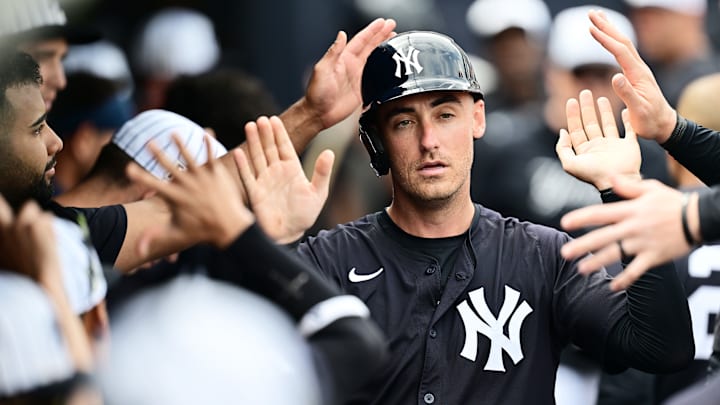If you had any lingering doubts about the goal behind trading Cody Bellinger, Thursday's roster move eliminated them. The Chicago Cubs designated right-hander Cody Poteet, the pitcher acquired from the New York Yankees in exchange for Bellinger, for assignment - etching the move into history as nothing more than a straight salary dump.
The move made sense initially, with the club acquiring outfielder Kyle Tucker from the Houston Astros just four days prior. Along with the emergence of Michael Busch at first base and Pete Crow-Armstrong in center, the pathway to playing time for Bellinger became slimmer and slimmer. The move was spun as a way to free up financial resources to re-invest in the roster. That, of course, never happened - and the Cubs entered the 2025 season with a decreased payroll.
What never made any sense was Poteet as the return the Cubs received. Across two seasons in Chicago, Bellinger hit 44 home runs with an OPS+ of 125, along with Gold Glove-caliber defense at both first base and in center field. Despite the $52.5 million owed to him over the next two years, fans were hopeful the Cubs could still gain some kind of return to improve the team in his absence.
“I think Cody is a great player,’’ Hoyer told USA Today’s Bob Nightengale. “It just felt like we could kind of re-deploy those resources in a more efficient way to help the team in other ways. So that was really the gist of it. Once we acquired Tucker, it felt like that was the right move.’’
That return wound up being Poteet - and significant financial savings by unloading Bellinger's contract. In just two spring training games for the Cubs, he allowed four runs on five hits along with four walks in just 3 1/3 innings.
Cubs meekly closed out the offseason, pocketing the savings from the Cody Bellinger trade
After whiffing on multiple high-profile free agents, including Alex Bregman and Japanese sensation Roki Sasaki, fans continued to wait in anticipation for those resources to be re-deployed. When the Cubs failed to reach an extension with the newly-acquired Kyle Tucker, anticipation quickly turned to anger and disappointment.
After doing relatively little to substantially bolster the roster outside of the Tucker acquisition, the jury is still out on whether or not the team has improved in a marked way ahead of the 2025 campaign.
The Tucker trade has already drawn scrutiny by fans and experts alike, amplified by former Cubs prospect Cam Smith making Houston’s Opening Day roster. Should the Cubs fail to re-sign Tucker this offseason, it would call into question the point of trading Bellinger in the first place.
The Bellinger and Tucker trades were meant to signify a transition in offseason strategy, jumpstarting the next competitive window of Cubs baseball. What followed instead was the same passive nature Cubs fans have grown all too familiar with in recent years.
